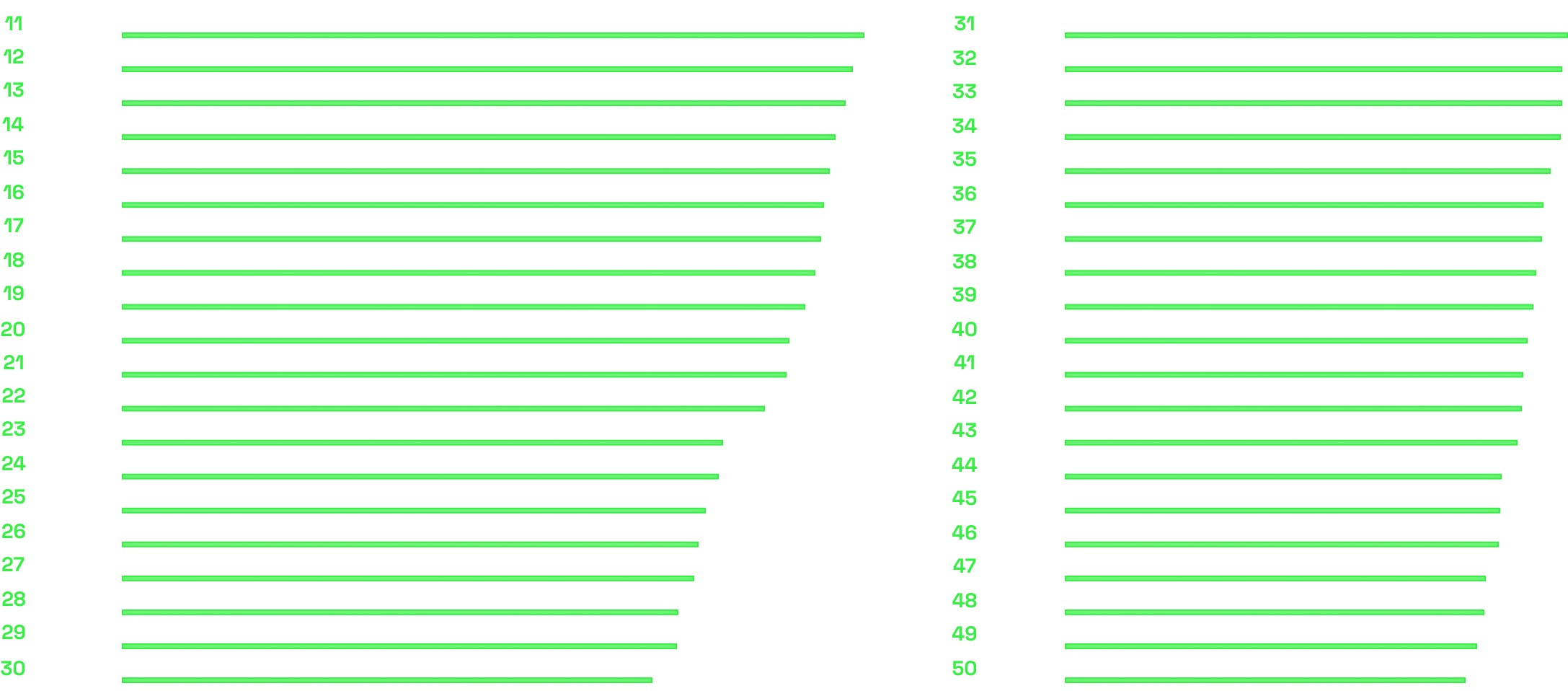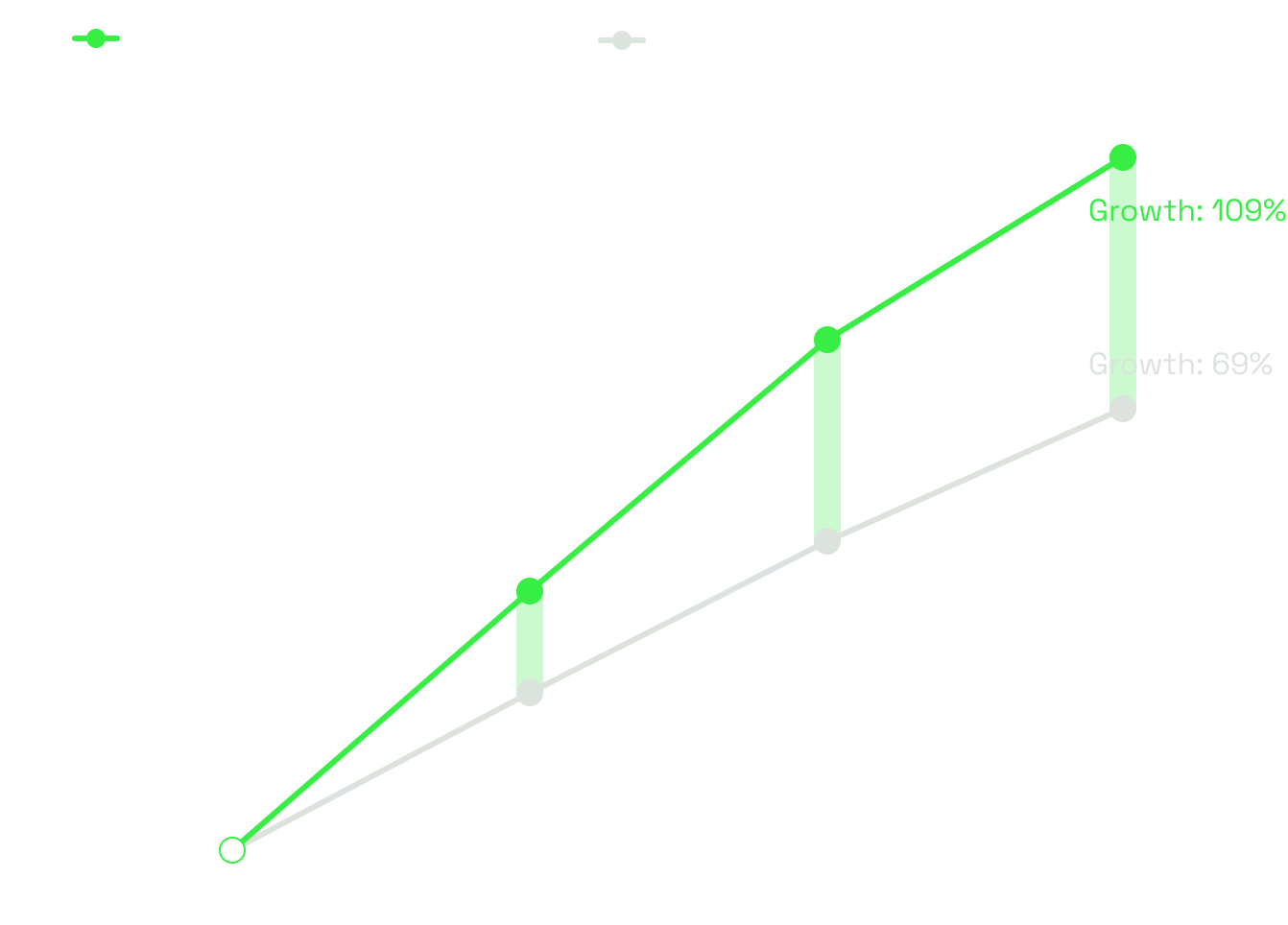GlassDollar Report Vol II
The Startup Advantage
Startup Collaboration and its Impact on Company Performance
Explore the findings
Download Report
*No email required
.png)
GlassDollar collected 250k corporate–startup partnerships to date.
250,000+ Collaborations
Collaborations identified via verified public sources, company disclosures, and press releases.
Verified and Classified Data
Data verified and classified over a nine-month research period.
The ten leading corporations in startup collaborations
The global ranking of corporate–startup collaboration is led by three familiar names: Amazon, Microsoft, and Google. Their prominence reflects not only their active partnership strategies but also their role as core technology enablers forth startup ecosystem. Cloud infrastructure, software platforms, and digital services from these firms underpin a large share of startup operations worldwide, naturally leading to a high number of recorded collaborations.
More broadly, these technology giants illustrate the power of systematic startup procurement at scale. Their success is built on enabling external developers, partners, and startups to innovate on top of their platforms – a model best exemplified by ecosystems such as the App Store.
Looking beyond these tech leaders, Volkswagen Group (including all its individual brands) emerges as the most startup-engaged corporation globally outside the tech sector, ranking fourth overall. Siemens, as the only industrial incumbent, also makes the top 10. These rankings are notable: they highlight how traditional industries (particularly Automotive and Industrial Manufacturing) are increasingly embracing startup innovation procurement as a strategic capability.
More broadly, these technology giants illustrate the power of systematic startup procurement at scale. Their success is built on enabling external developers, partners, and startups to innovate on top of their platforms – a model best exemplified by ecosystems such as the App Store.
Looking beyond these tech leaders, Volkswagen Group (including all its individual brands) emerges as the most startup-engaged corporation globally outside the tech sector, ranking fourth overall. Siemens, as the only industrial incumbent, also makes the top 10. These rankings are notable: they highlight how traditional industries (particularly Automotive and Industrial Manufacturing) are increasingly embracing startup innovation procurement as a strategic capability.
Startup partnership are linked to sustained market outperformance
Companies that systematically collaborate with startups tend to outperform the broader market. Between December 2022 and September 2025, the Top 50 startup collaborators globally increased their combined market capitalization by 109% (more than doubling over this period), compared with 69% for the MSCI World Index –an outperformance of 40 percentage points.
Importantly, this three-year period was characterized by a strong global bull market, driven by post-COVID macroeconomic recovery and technological optimism, particularly around AI. The fact that leading startup collaborators outpaced an already expanding market underscores the robustness of the relationship between startup engagement and market performance, suggesting a structural advantage rather than a cyclical one.
While this analysis does not imply causation, the correlation is both consistent and significant. It indicates that systematic engagement with external innovation enhances corporate adaptability, speed of learning, and market responsiveness – all capabilities that investors increasingly value in times of technological and economic volatility. In short: open innovation pays off.
Importantly, this three-year period was characterized by a strong global bull market, driven by post-COVID macroeconomic recovery and technological optimism, particularly around AI. The fact that leading startup collaborators outpaced an already expanding market underscores the robustness of the relationship between startup engagement and market performance, suggesting a structural advantage rather than a cyclical one.
While this analysis does not imply causation, the correlation is both consistent and significant. It indicates that systematic engagement with external innovation enhances corporate adaptability, speed of learning, and market responsiveness – all capabilities that investors increasingly value in times of technological and economic volatility. In short: open innovation pays off.
The outperformance persists even when excluding major tech giants
A common assumption might be that the market outperformance of leading startup collaborators is primarily driven by large-cap technology firms. To test this hypothesis, we repeated the analysis excluding the four major U.S. technology companies (Amazon, Meta, Google, and Microsoft) from the Top 50 group.
The results remain consistent. Even without these firms, the remaining corporate collaborators outperformed the MSCI World Index by 17 percentage points, confirming that the observed relationship is not solely attributable to the technology sector. This finding suggests that the correlation between startup collaboration and market performance extends beyond the structural advantages of large-cap tech players. Instead, it reflects a broader organizational capability: the ability to systematically identify, integrate, and scale external innovation. Since market capitalization captures investors’ expectations of future cash flows, this outperformance also indicates that the market anticipates stronger long-term value creation and competitive advantage among corporations that collaborate effectively with startups.
The next question is what enables this advantage. The data points to one key factor: corporations’ ability to access and leverage external innovation capital…
The results remain consistent. Even without these firms, the remaining corporate collaborators outperformed the MSCI World Index by 17 percentage points, confirming that the observed relationship is not solely attributable to the technology sector. This finding suggests that the correlation between startup collaboration and market performance extends beyond the structural advantages of large-cap tech players. Instead, it reflects a broader organizational capability: the ability to systematically identify, integrate, and scale external innovation. Since market capitalization captures investors’ expectations of future cash flows, this outperformance also indicates that the market anticipates stronger long-term value creation and competitive advantage among corporations that collaborate effectively with startups.
The next question is what enables this advantage. The data points to one key factor: corporations’ ability to access and leverage external innovation capital…
GlassDollar Report Vol. II
Explore over 70 data visualizations, download the report now for free.
Feel free to download, browse and share the report.
No email required.
No email required.
Explore Report
Download Report
*No email required
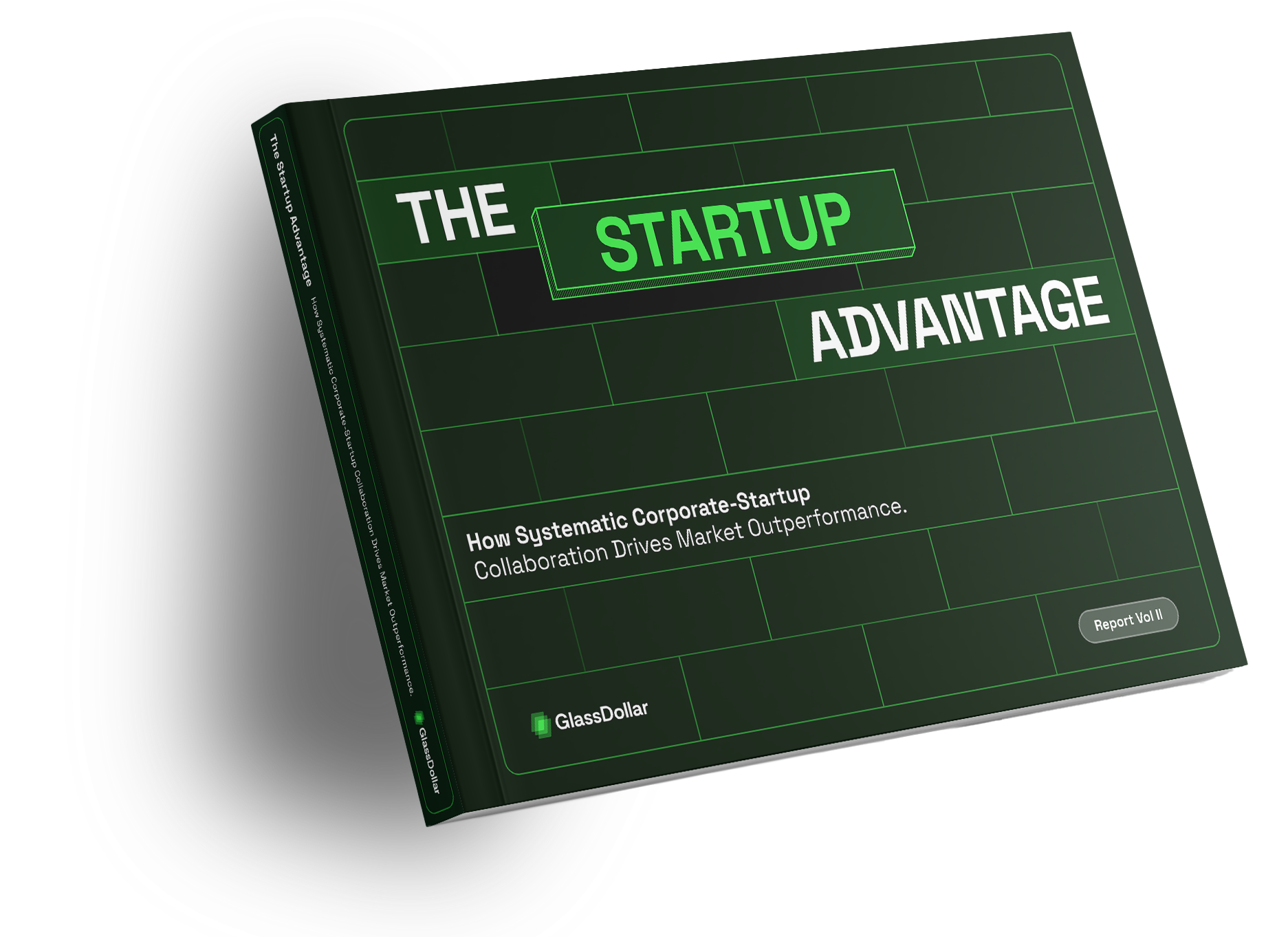
.png)
